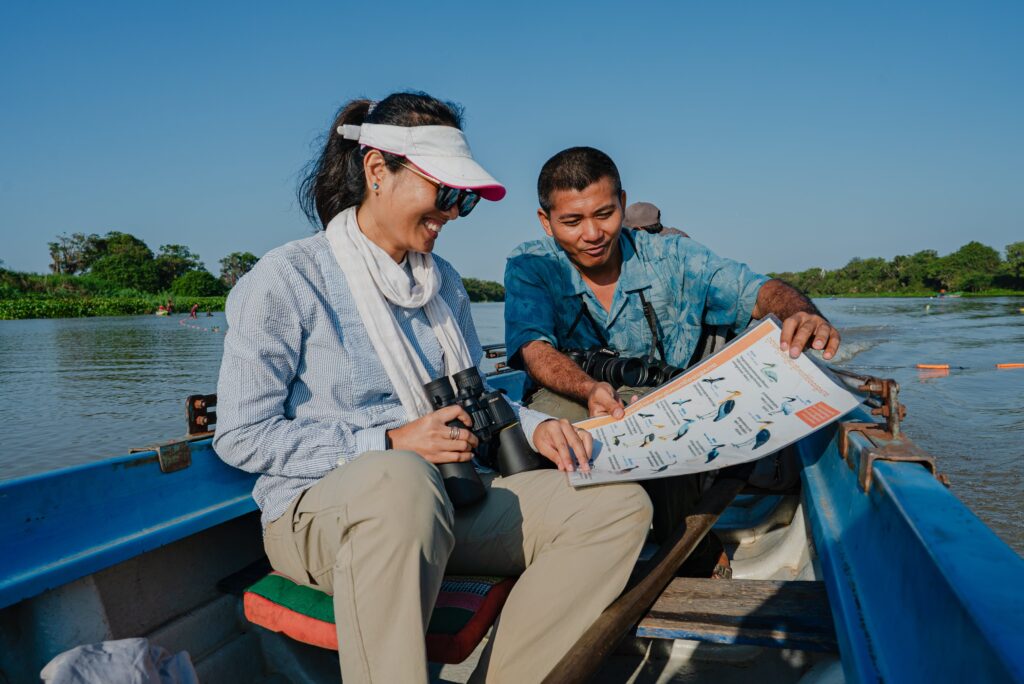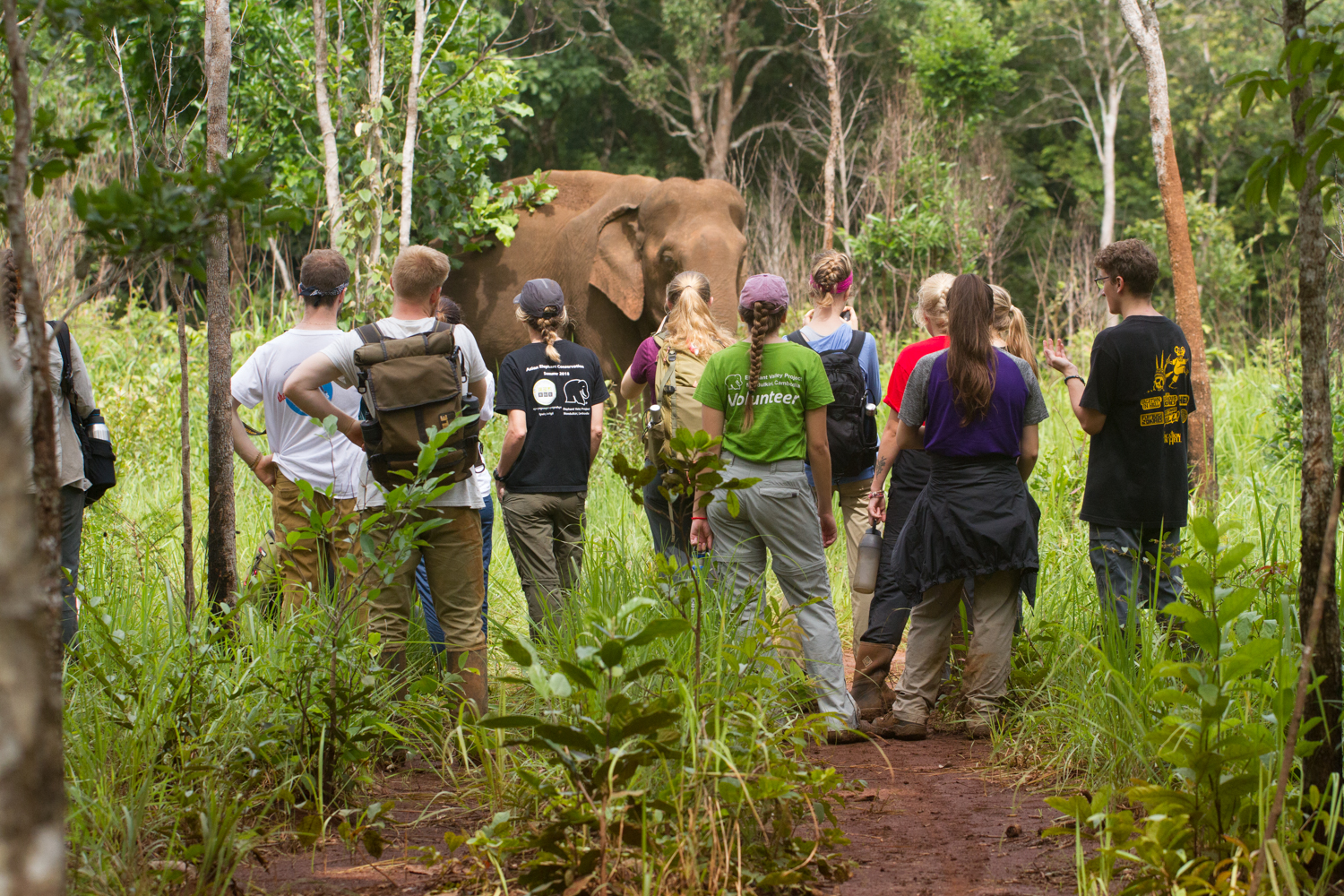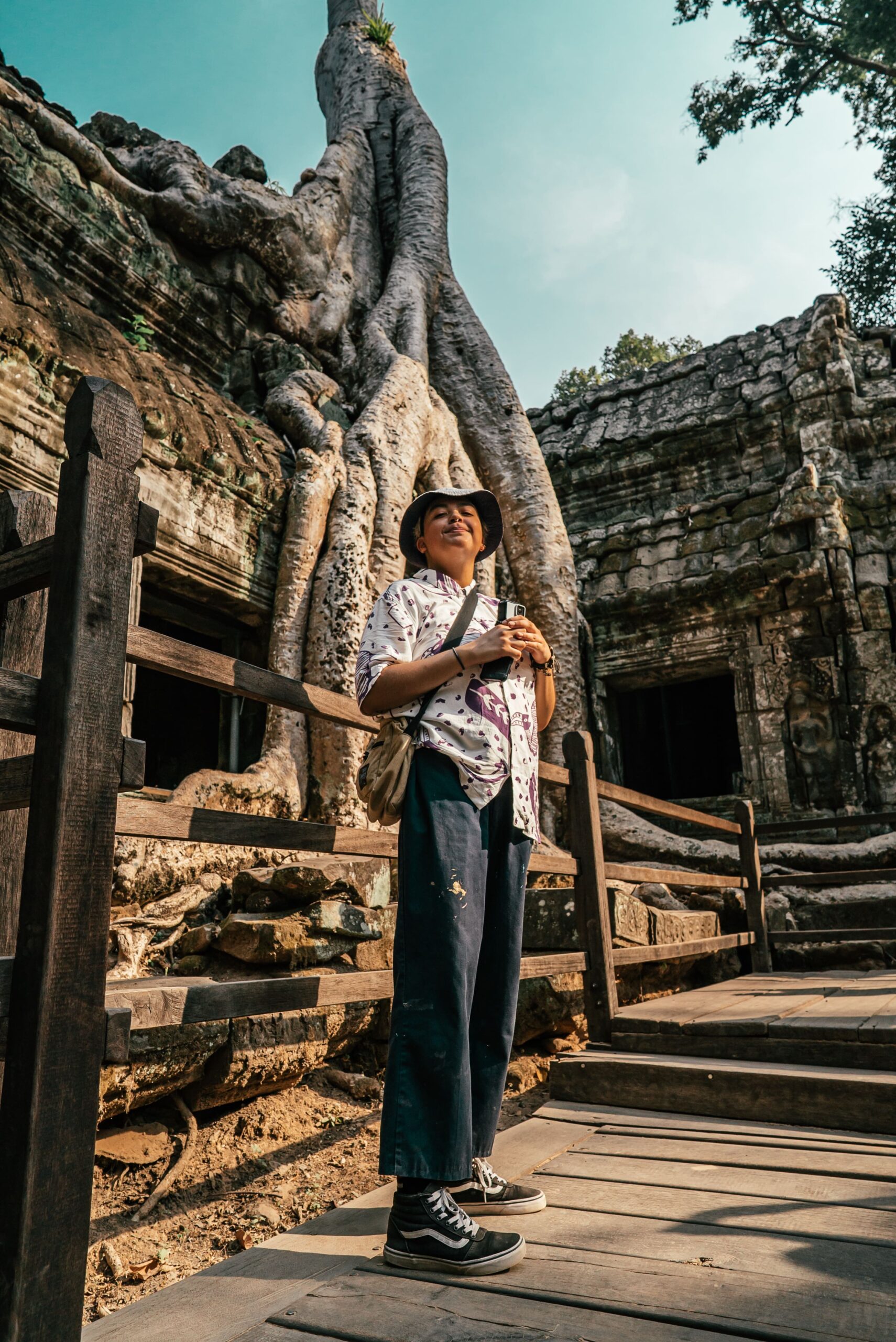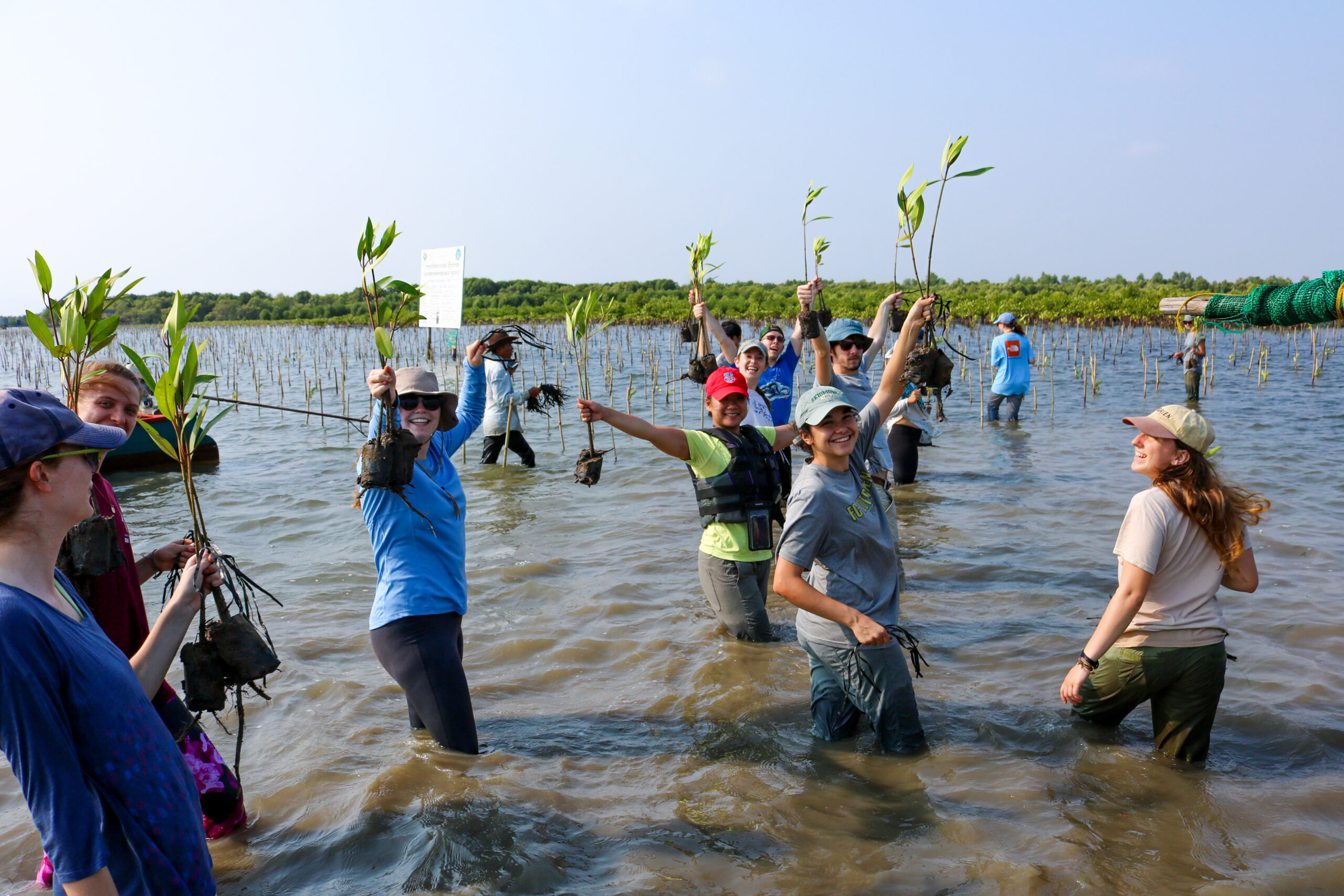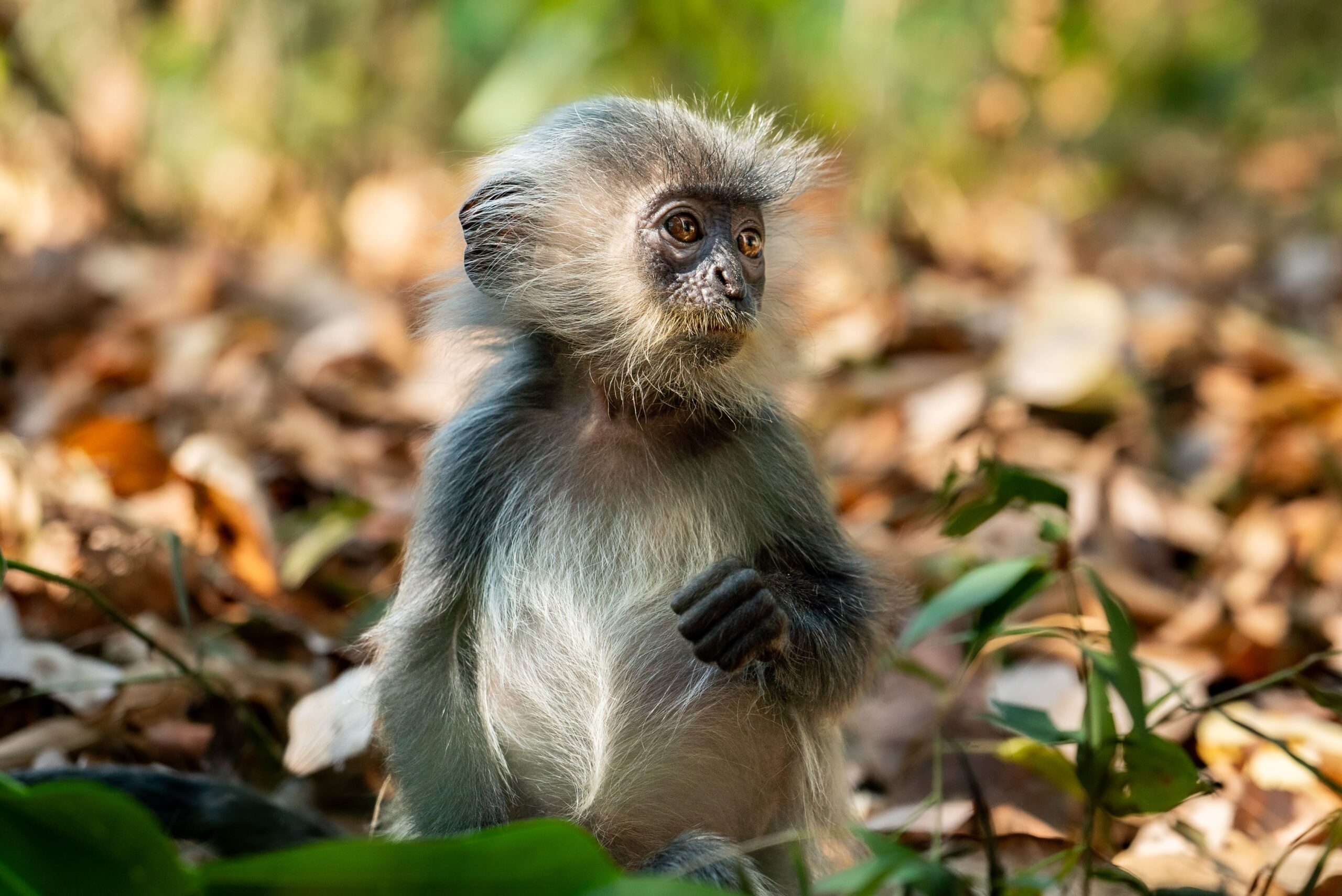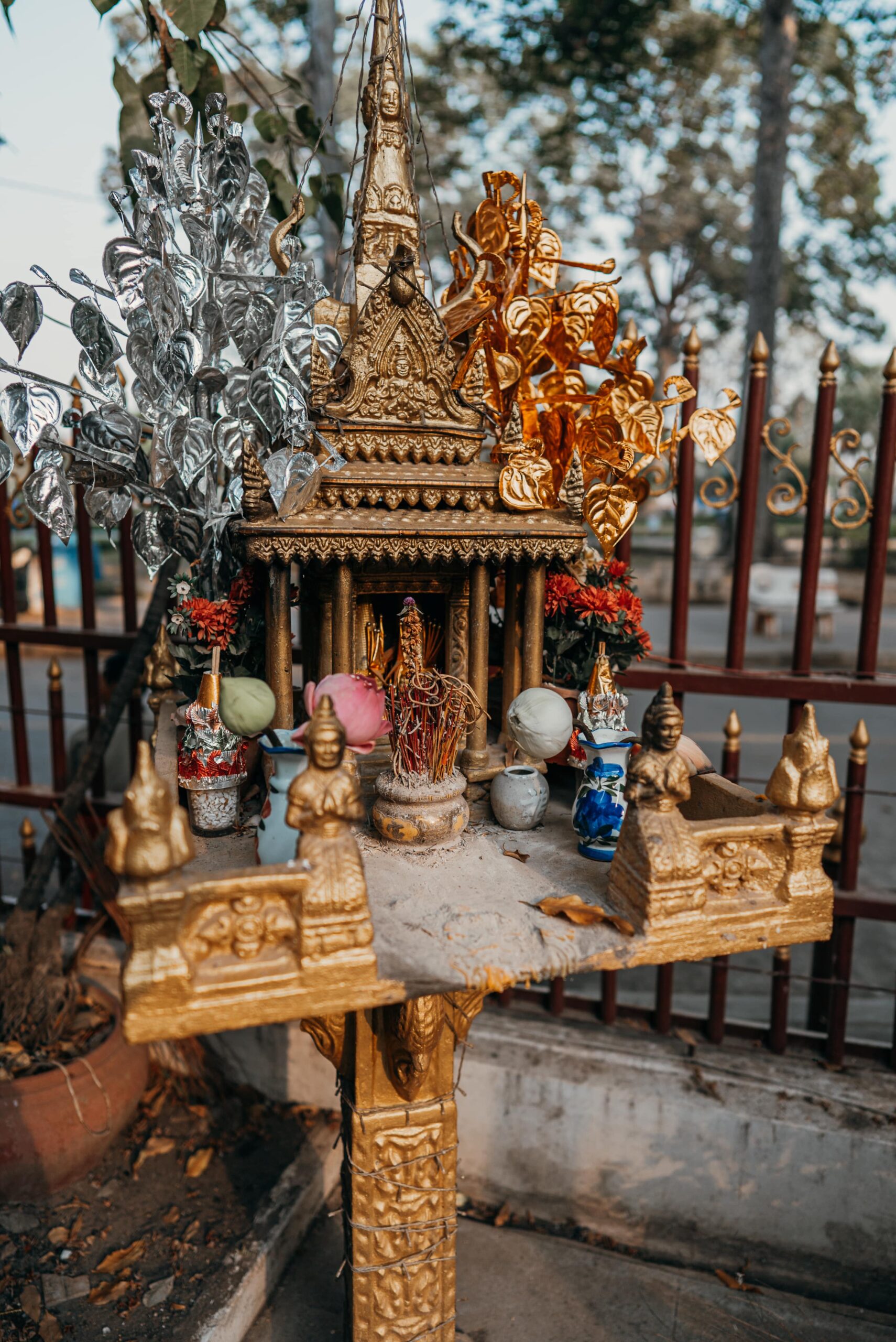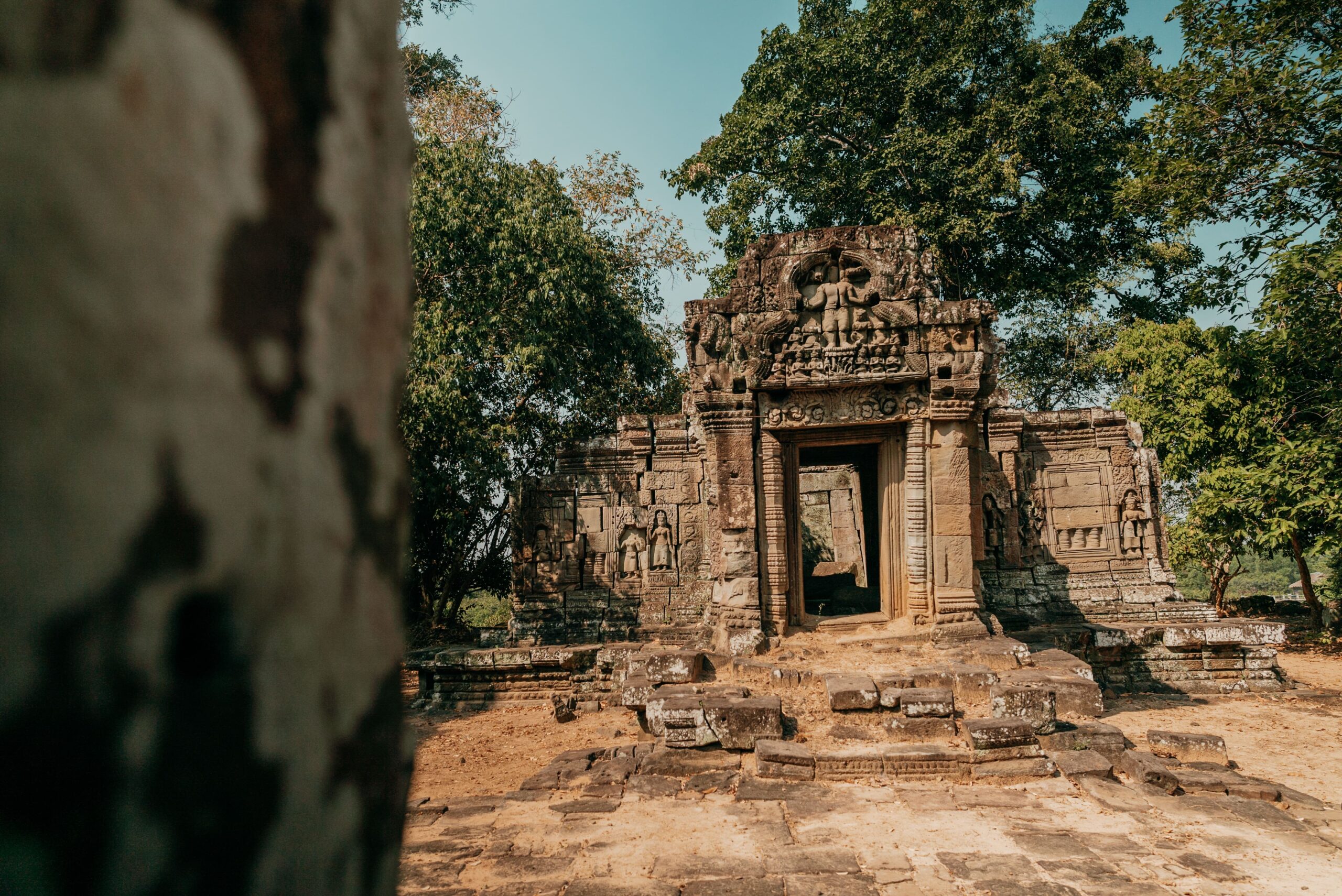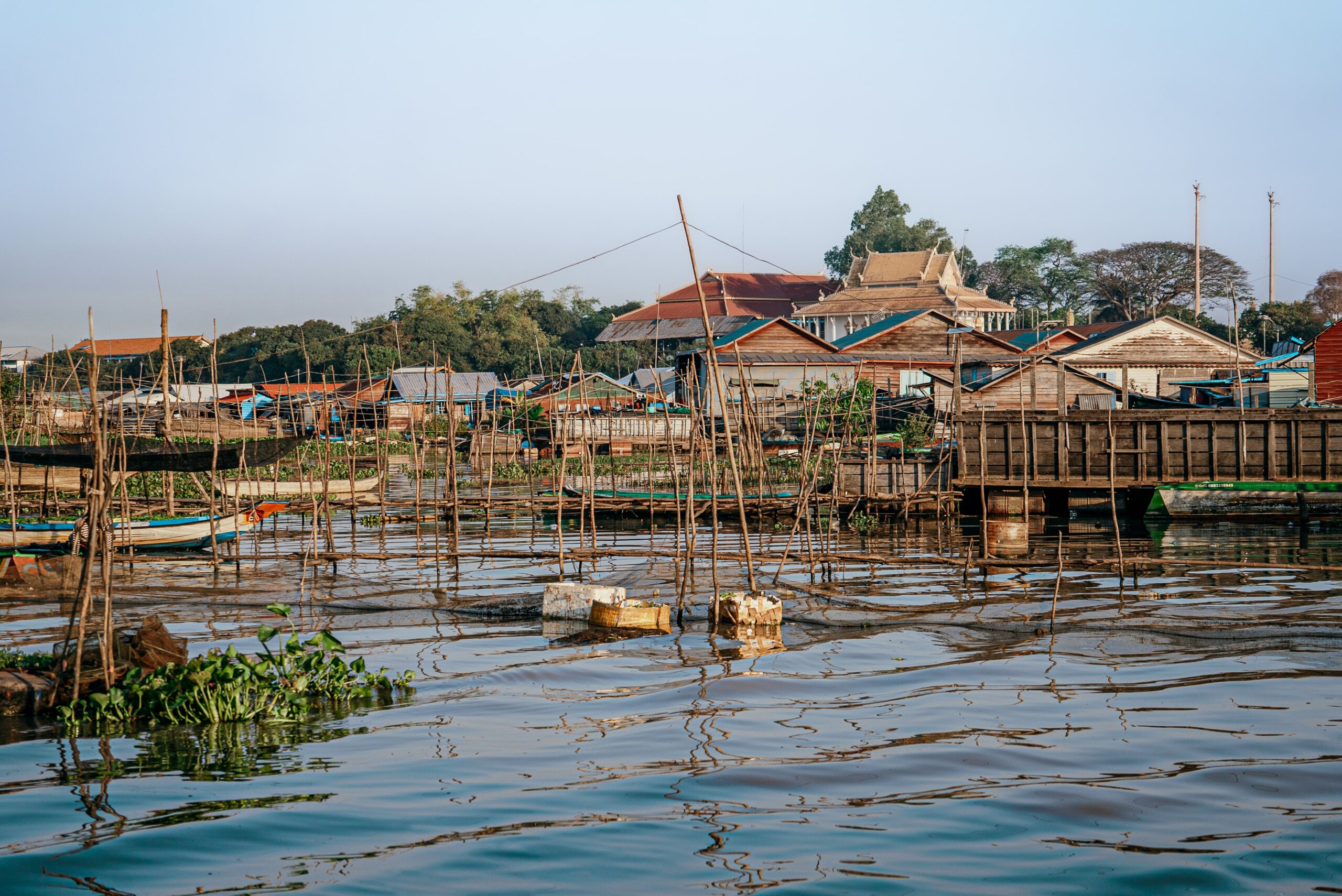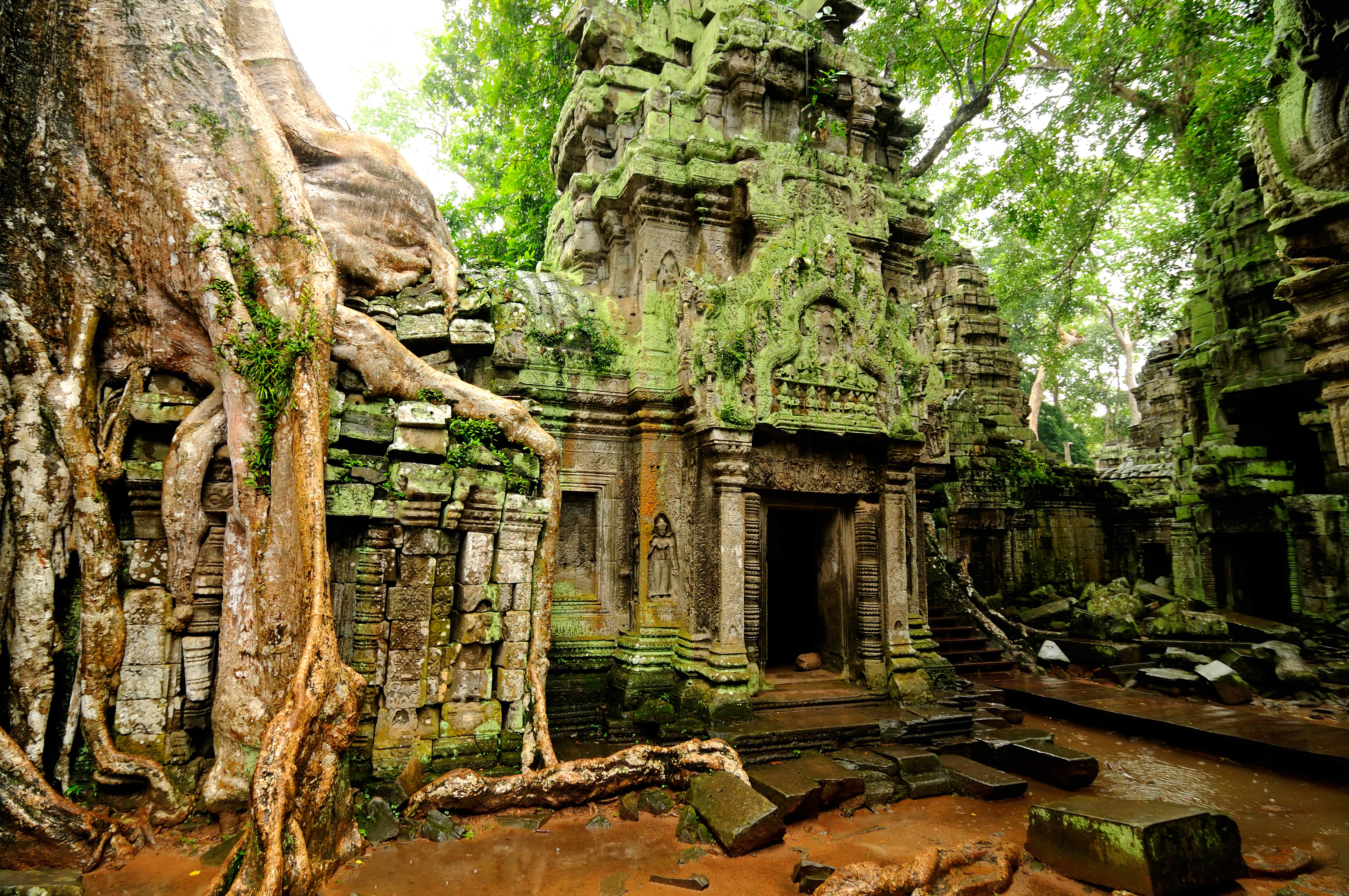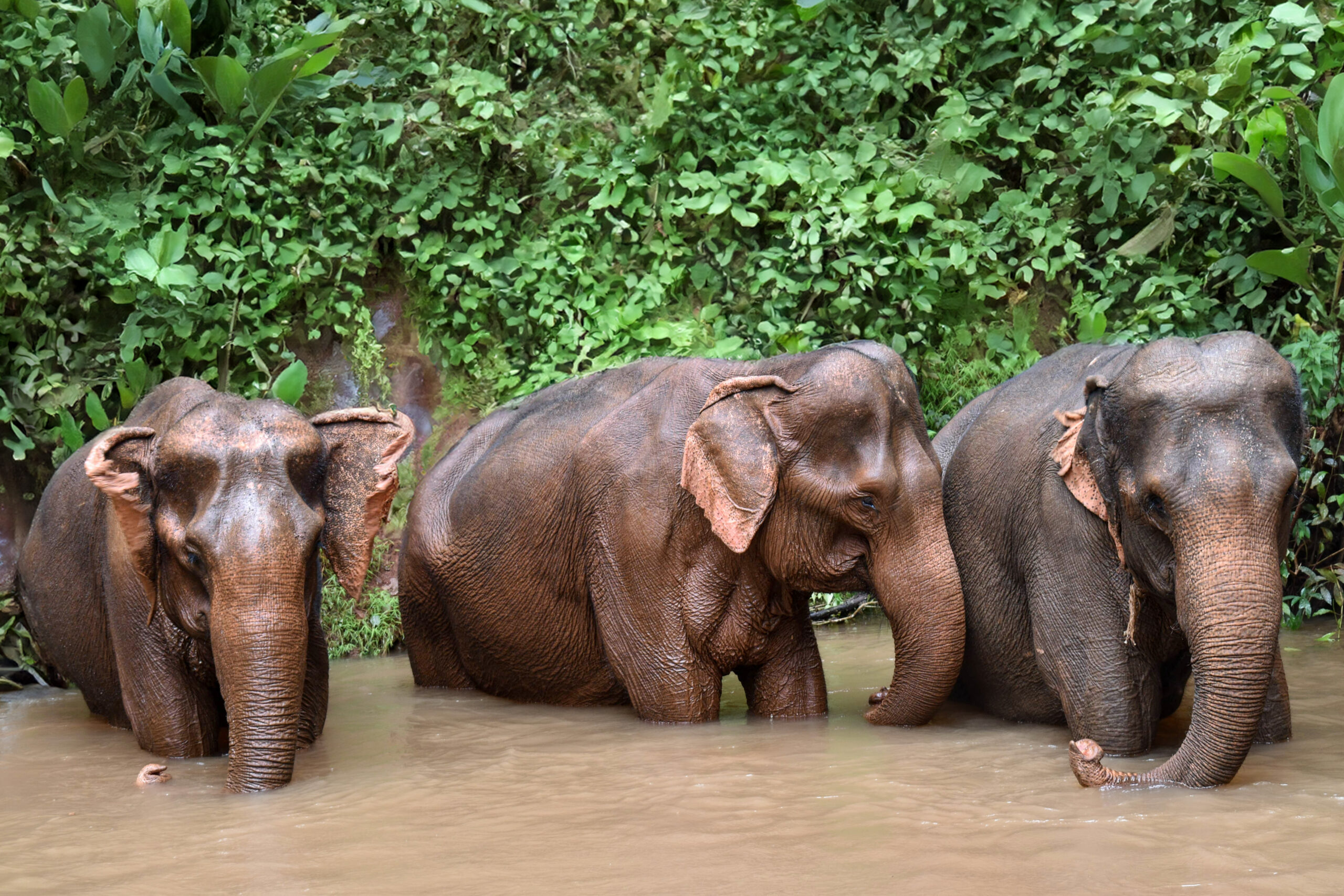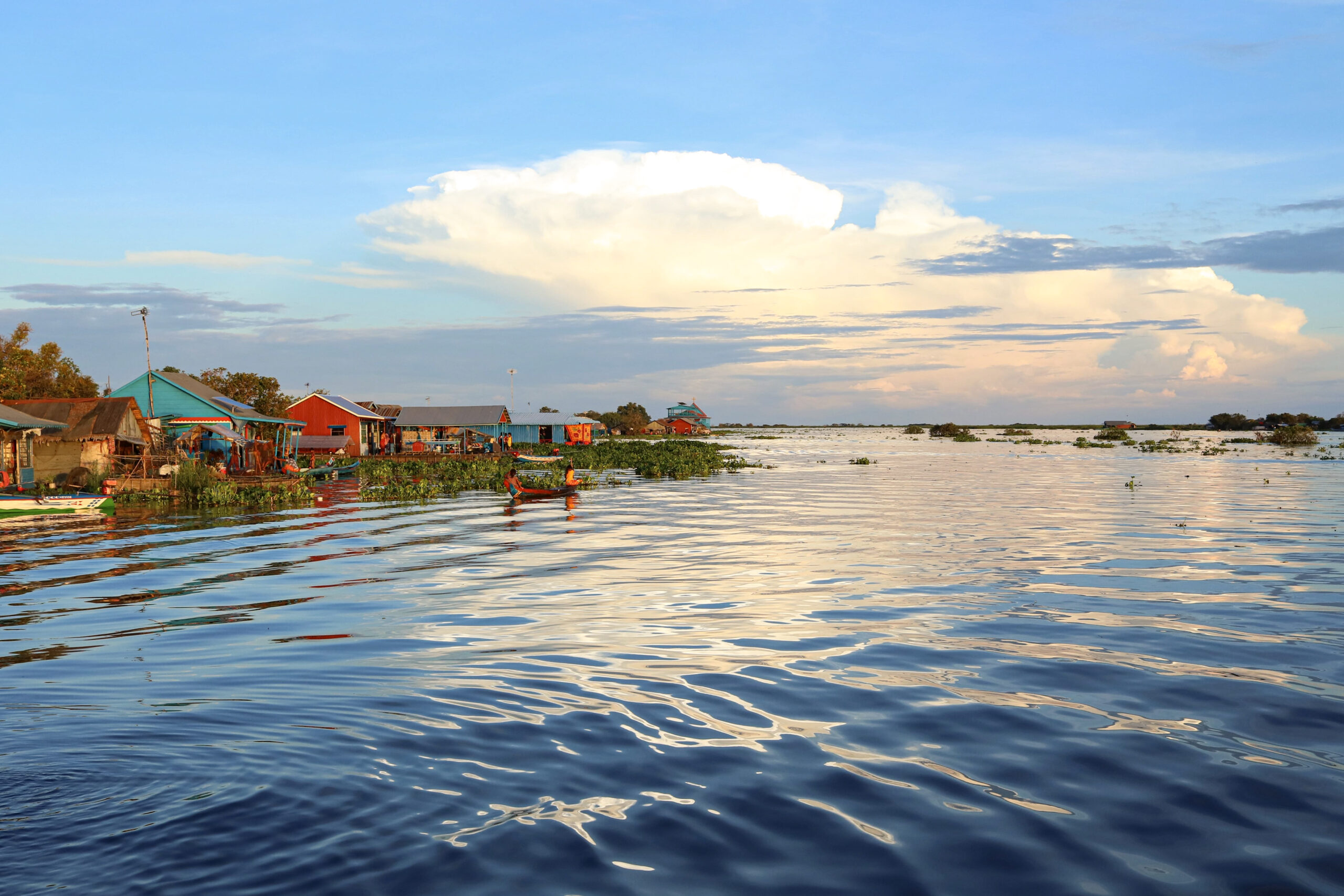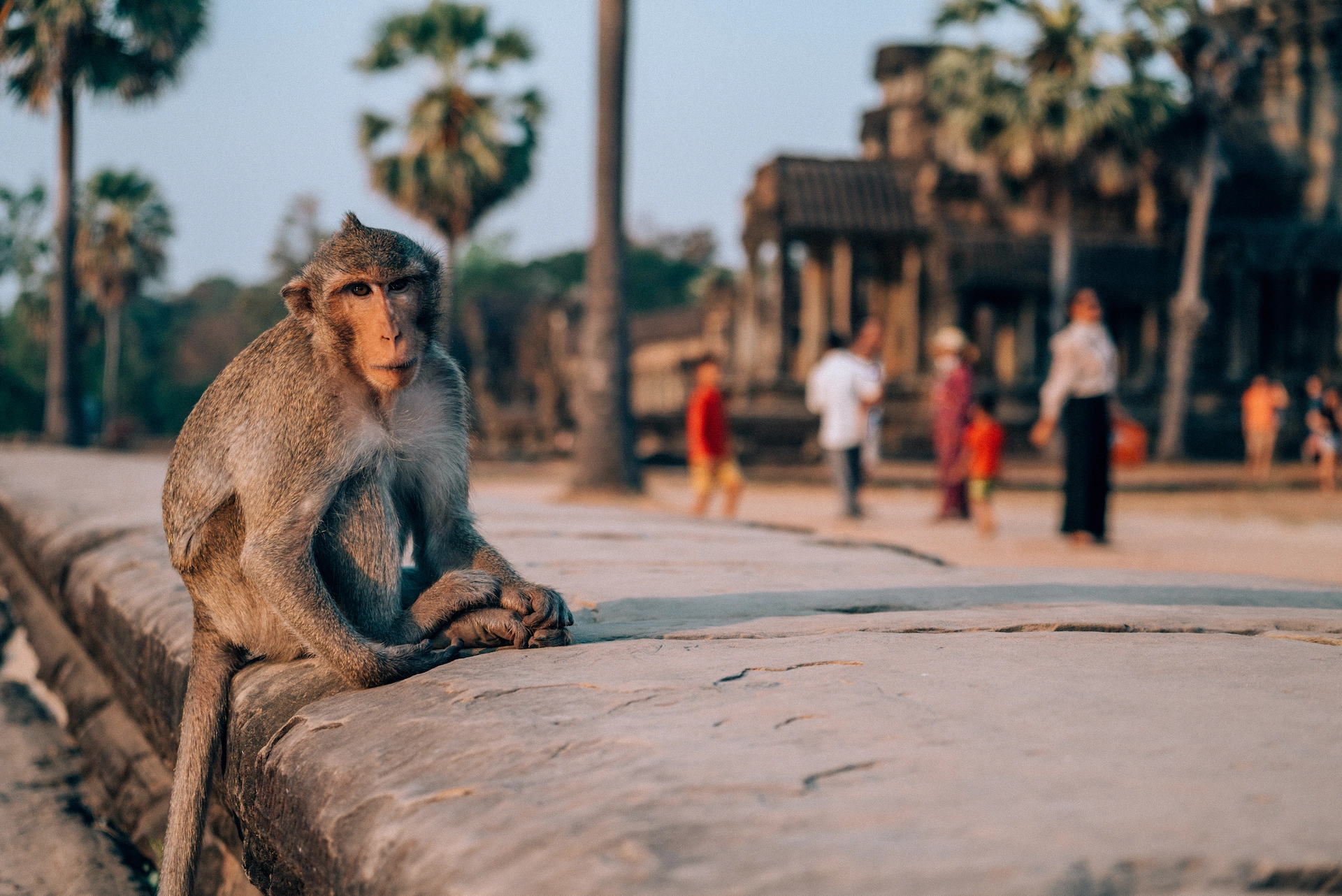Environmental Justice and Mekong Ecologies
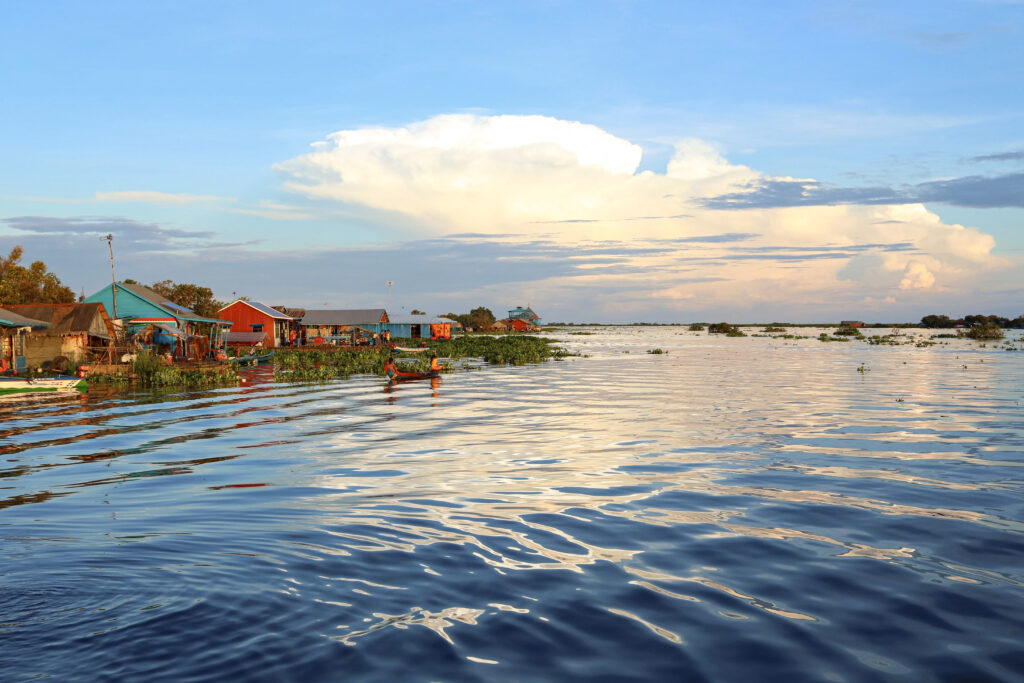
Program Costs
- Tuition
- Room & Board
- Total
Application Deadlines
Resources
Environmental Justice and Mekong Ecologies
In Cambodia, ecosystems and the communities they sustain are deeply intertwined. From the ancient temples of Angkor to the highlands of Mondulkiri, and from the floating villages on the Tonle Sap to the banks of the Mekong River, you’ll explore how conservation unfolds in daily life. Examine how forests, rivers, and farmland are changing—and how communities adapt. Investigate land rights, small-scale farming, forest management, and the impacts of hydropower on ecosystems and livelihoods. Through immersive fieldwork, you’ll gain hands-on experience with biodiversity surveys, forest inventories, and drone-based GIS mapping. Engage with farmers, Indigenous leaders, scientists, and activists—each offering grounded insights into conservation in a rapidly evolving landscape. Stay in jungle huts near elephants and gibbons, conduct research in remote villages, and spend time in Cambodia’s capital, Phnom Penh. Through it all, you’ll build field skills, cultural insight, and a deeper understanding of how conservation and environmental justice intersect.
- Live and learn in a floating village on Tonle Sap Lake, speaking with local families about how climate change is reshaping livelihoods across Southeast Asia’s largest freshwater ecosystem.
- Trek through the Mondulkiri highlands to study elephant conservation and see how development is transforming the land and culture of the indigenous Bunong people.
- Stay overnight with indigenous Kuy communities and Mekong island farmers, exploring how environmental justice connects to water rights, food systems, and rural resilience.
- Camp in sacred Kulen National Park, the ancient Khmer capital, where traditional medicine, biodiversity, and spiritual heritage converge in a living cultural landscape.
- Explore the jungle temples of Angkor, including Angkor Wat, uncovering how religion, empire, and ecology shaped one of the world’s most iconic heritage sites.
- Conduct Directed Research: frame a stakeholder-driven question, collect and analyze field data with faculty guidance, and present actionable findings to local partners.
Academics
This academically rigorous program follows a six-day/week schedule. Each program combines theory learned during classroom sessions with field-based applications. The interdisciplinary curriculum is designed to help students actively discover and understand the complexities of environmental, social, and economic issues in Cambodia. Read more about the SFS program model.
Major academic themes include:
- Climate change impacts
- Elephant ecology and conservation
- Traditional livelihoods and ecological knowledge
- Community conservation strategies
- Indigenous rights and challenges
- Protected areas and threatened ecosystems
- Environmental ethics and justice
- Natural resource governance
Courses
On the Environmental Justice and Mekong Ecologies program, you will take three 4-credit disciplinary courses, one 2-credit language and culture course, and a 4-credit capstone Directed Research course. Courses are participatory in nature and are designed to foster inquiry and active learning. Each course combines lectures, field exercises, assignments, tests, and research. All courses are taught in English. Click on each course to view a description and download the syllabus.
Freshwater Ecosystems in Cambodia
This course provides an integrated, hands-on exploration of the Mekong River, the Tonle Sap Lake, and their tributaries in Cambodia, one of the world’s most productive and unique flood-pulse ecosystems. We’ll delve into the physical, chemical, and biological forces that drive the ecosystem’s extraordinary productivity and biodiversity, focusing on the dynamic link between the river and the lake. Through extensive fieldwork, students will develop practical skills in aquatic sampling and analysis, including water quality testing, macroinvertebrate surveys, and fish population assessment. They will also gain experience with ecological monitoring techniques and participatory approaches to community-based resource research. Students will gain a deep understanding of tropical river-floodplain ecology, fisheries science, and the human-environment interactions that define the Lower Mekong Basin.
By using the Tonle Sap Lake and Mekong River as a primary study region, the course will integrate perspectives from ecology, hydrology, resource management, climate change and policy/governance as approaches that will allow us to thoroughly analyze and address the multi-faceted environmental challenges within this critical tropical freshwater system.
Environmental Ethics and Development
This course takes a pragmatic approach to environmental ethics, looking, through a variety of thematic scenarios, at how decisions relating to the environment can be made through an applied ethical lens. Following an introduction to the foundations of environmental ethics and the cultural context of Cambodia, we explore ethical problems that are pertinent to environmental studies. In particular, students in this course examine contemporary environmental dilemmas and topics as they affect Cambodia and its neighbor further down the delta, Vietnam. Students study environmental ethics in relation to economic growth and development, and consider the purpose of nature and humans’ role in managing it while still encouraging responsible development.
Conservation Science and Practice in Cambodia
This course introduces the concepts, tools, and incentives to effect conservation of the environment and natural resources. The field of conservation is focused on protecting biological diversity—including ecosystems, species, and genetic diversity—by promoting processes, both ecological and social, that support biodiversity. The course focuses on five core themes: what biodiversity is; why biodiversity is important; threats to biodiversity; strategies for conservation; and the concept of sustainability. We explore the practical aspects of conservation using local case studies, considering the array of conservation strategies in the region, and using this lens to evaluate global concerns on a local scale.
Directed Research – Cambodia
This course prepares students to distinguish hidden assumptions in scientific approaches and separate fact from interpretation, cause from correlation, and advocacy from objectivity. Students learn specific tools including: experimental design; field techniques; basic descriptive statistics; and parametric and non-parametric quantitative analysis. Emphasis is placed on succinct scientific writing, graphic and tabular presentation of results, and effective delivery of oral presentations.
Language and Culture of Cambodia
The Language and Culture course consists of two modules: Cambodian society and culture, and Khmer language. It offers an introduction to spoken Khmer and explores the history and culture of Cambodia. The socio-cultural module aims to immerse students in the local culture and enhance their ability to work effectively in community-based research. While the primary focus is on Cambodia, Vietnamese history is also covered due to shared politics and history. The Khmer language module focuses on beginner-level listening and oral practice to improve communication and comprehension skills in everyday situations. Both modules emphasize direct interaction with local communities through lectures, field visits, cultural events, and community outreach. Assignments include journal entries, cultural discussions, briefings, and community interactions. The Language and Culture course consists of two modules: Cambodian society and culture, and Khmer language. It offers an introduction to spoken Khmer and explores the history and culture of Cambodia. The socio-cultural module aims to immerse students in the local culture and enhance their ability to work effectively in community-based research. While the primary focus is on Cambodia, Vietnamese history is also covered due to shared politics and history. The Khmer language module focuses on beginner-level listening and oral practice to improve communication and comprehension skills in everyday situations. Both modules emphasize direct interaction with local communities through lectures, field visits, cultural events, and community outreach. Students engage in activities like overnight homestays, workshops with local students, community events, and service projects. Assignments include journal entries, cultural discussions, briefings, and community interactions.
Core Skills
You will gain practical skills in the field such as: biodiversity assessments, population monitoring, animal behavior observation, protected areas assessments, tourism impact assessments, environmental impacts assessments, conservation strategy assessments, biodiversity survey techniques, forest survey methods, tag/recapture techniques, camera trapping, video and photo tracking, forest restoration techniques, interview methods, species management planning, citizen science protocols, conservation projects proposals, grant writing, ethics and reasoning, research design and implementation, quantitative/qualitative data collection and analysis, scientific writing and communication, basic Khmer language skills.
Field Sites
You will visit different ecosystems and communities which may include multiple elephant and animal sanctuaries, the ancient temple complex of Angkor, freshwater ecosystems of the Tonle Sap Lake, Mekong River, fishing and farming villages, protected community forests, semi-evergreen rainforests, historical and cultural sites in Phnom Penh, mountains, farms, and the bustling markets of Siem Reap.
Other Cambodia Programs
Environmental Justice and Mekong Ecologies
More Information
Program Costs
- Tuition
- Room & Board
- Total
Elephants of Southeast Asia
More Information
Program Costs
- Tuition
- Room & Board
- Total

